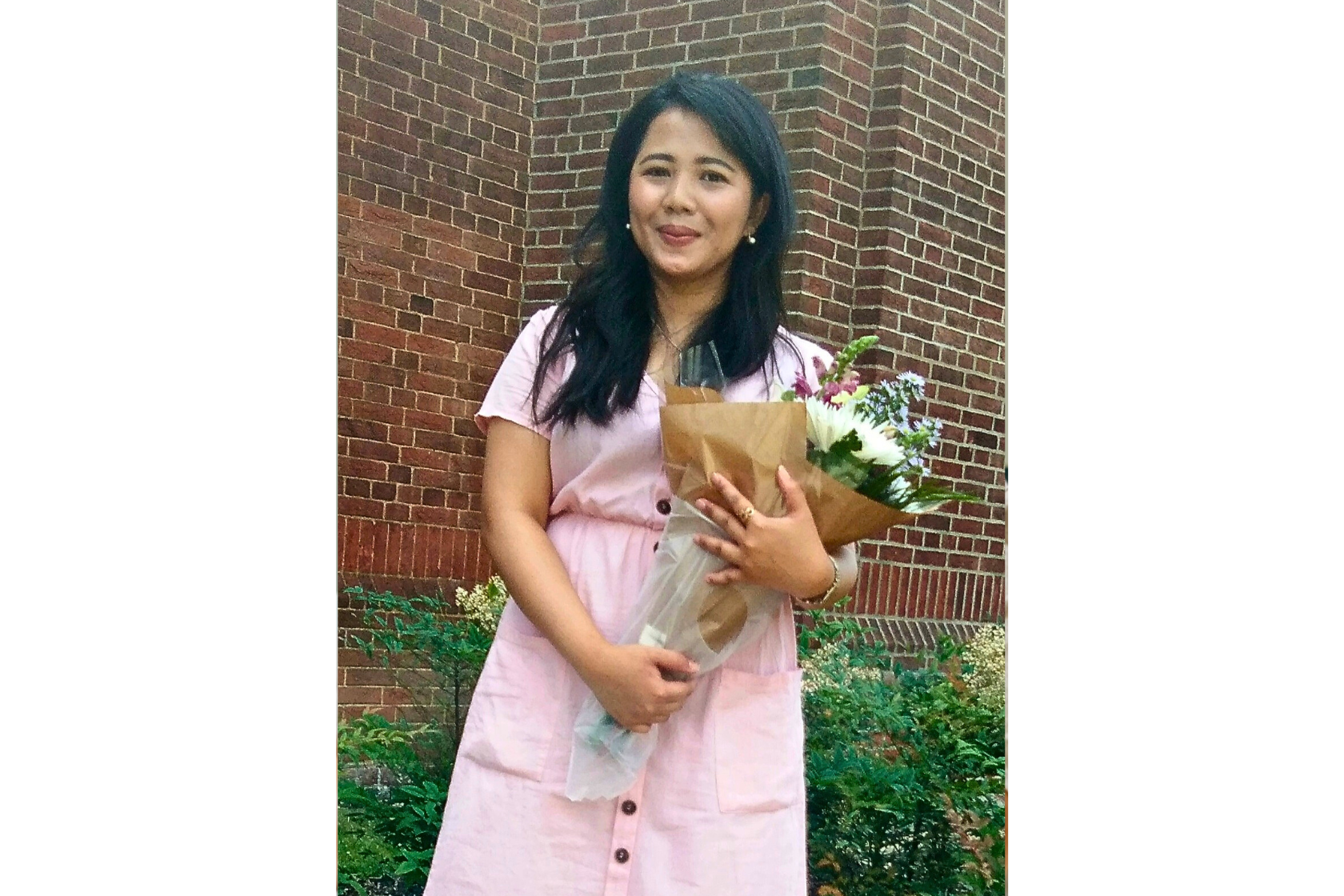
17 November 2025
From Passion to Action: Yuni Arsiyanti's Fight for Women and Gender Equity
For Australia Awards alumna Yuni Arsiyanti, the pursuit of gender equality and the eradication of vi... Read more
The Australia Awards are prestigious, transformational scholarships and short courses offered to emerging leaders for study, research and professional development in Australia

19 May 2025
 Kristia Ningsih: Advancing Light-Based Technology Through Research, Leadership, and Global Collaboration
Kristia Ningsih: Advancing Light-Based Technology Through Research, Leadership, and Global Collaboration
Kristia Ningsih, an Australia Awards PhD scholar at the University of Sydney, is contributing to the global optics and photonics community while building pathways for the next generation of scientists.
Kristia completed her Masters degree in Optical Fibre and Photonic Engineering at the University of Southampton, UK, in 2020. Upon returning to Indonesia, she resumed her role at Universitas Airlangga in Surabaya, but required a PhD to maintain her position as a lecturer.
Recognising the gap in local expertise in optics and photonics, Kristia applied for the Australia Awards Scholarship and was accepted in 2022.
The field of optics and photonics is concerned with light-based technologies. Photonics is used in communications, such as fibre optic internet and satellite communications chips, in military technologies and in medical technology, such as surgical lasers and cancer detection tools.
Photonics technology was now preferred to electronics in a wide range of industries because it was faster and more secure, more energy efficient and more stable, Kristia explained.
‘There is a significant shortage of experts in this field in Indonesia, especially after the pandemic. I felt a strong responsibility to return with new knowledge and fill that gap,’ she shared.
From Satellite Projects to Scientific Leadership
A highlight of Kristia’s time in Australia so far was her involvement in the launch of the CUAVA Satellite Project, funded by the Australian Research Council in 2024.
Kristia was involved in coding work that was essential to ensure communication and data transmission from the satellite.
‘Being part of the satellite launch project was a valuable and inspiring experience. The process and work have strengthened my knowledge, especially in computational coding in integrated optics and photonics. This experience encouraged me to keep growing through research and collaboration,’ she said.
This year, Kristia was elected President of the SPIE and Optica Student Chapters at the University of Sydney. Both are international organisations focused on optics and photonics. Under her leadership, the chapters have hosted events connecting students with global experts.
‘With this responsibility, I’m gaining experience in project management, grant writing, and international collaboration. It complements my academic work and helps me grow professionally,’ she said.
She has also founded Australia’s first IEEE Student Chapter for Optics and Photonics. IEEE is the world’s largest technical professional organisation, and this new chapter aims to build stronger networks between students and professionals across Australian universities.
Kristia’s leadership and research achievements have been recognised internationally. In February 2025, she was selected to represent Australia at the Optica Global Student Leadership Summit in Colorado, USA. The event, to be held alongside the Frontiers in Optics (FiO) conference, brings together student leaders for technical learning, mentoring, and networking.
‘It’s an honour to represent Australia. The summit is a valuable space to share experiences and strengthen the global optics research community,’ she said.
Later in 2025, Kristia will also attend the Siegman International School on Lasers in Shanghai, China. She received a full scholarship to participate in the week-long training course, which selects 100 top graduate students worldwide to learn from leading scientists and industry experts.
‘The Siegman School provides more than technical knowledge. It also teaches how to develop and manage laser-based businesses, seek funding, and build innovation pipelines,’ she explained.
Seeking Support for Mental Health
Kristia’s studies in Australia have also given her a new perspective on the role of mental health in academic life. In 2018, she survived a deadly terrorist bombing in Surabaya. Following that traumatic event, she began experiencing panic attacks, including during her time as a lecturer in Indonesia.
When applying for the Australia Awards Scholarship, Kristia appreciated the program’s recognition of mental health as part of student wellbeing. During the pre-departure process, she was encouraged to include a psychologist’s report to ensure she would receive appropriate support.
Kristia encouraged future Australia Awards scholars to make the most of this support.
‘It’s not just about physical disabilities. Mental health is also considered, but many people are not aware,’ she suggested.
Since arriving in Sydney in early 2023, Kristia has accessed mental health support through university and continued therapy.
‘There were clear messages that the university supports students who face personal challenges. That made it easier for me to continue my studies even during difficult times,’ she shared.
During her PhD studies, Kristia experienced health events that affected her wellbeing, but she was able to access medical and psychological support through both the university and the Australia Awards network.
For Kristia, managing her mental health has been essential to maintaining progress in her research and leadership activities.
‘I’ve learned to ask for help when I need it. That has been important for getting through my studies,’ she said. ‘It’s important for students who are going through similar challenges to know that support is available. Mental health should be part of every student’s academic plan.’
Growing Indonesia’s Technical Expertise
Kristia is on track to complete her PhD in 2026. She plans to return to Indonesia to contribute to the development of optics and photonics across both academic and industrial sectors. She aims to lead initiatives that bridge research with innovation, particularly in telecommunications, sensing systems, and laser technologies.
In a country where most laser systems are still imported, Kristia hopes to support local capacity in designing and producing laser technologies for use in industry, medicine, academia, and research.
‘We need to understand not only how to use laser systems but also how to design and develop them. I want to help close that gap by combining research with entrepreneurship,’ she explained.
‘I also want to bring back the knowledge I’ve gained and contribute to Indonesia’s scientific and technological growth. There are still challenges, especially for women in science, but I believe it’s possible to create space for the next generation of researchers.’
Share this news on:
 Related News
Related NewsThis website uses cookies to improve your website experience. We may also use cookies to analyse website data so that we can improve our online services. To find out more visit our privacy policy.
